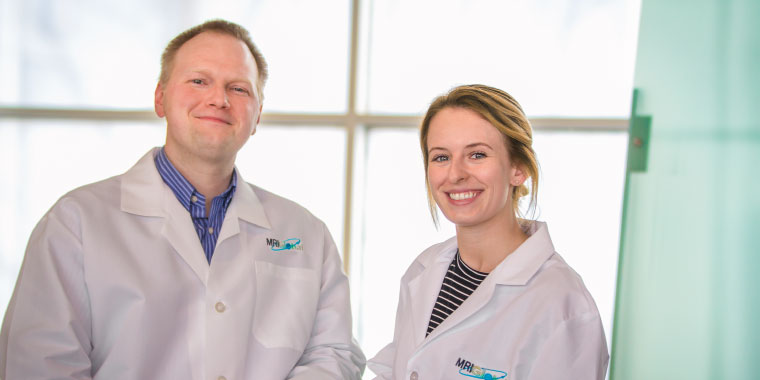Zika. Just a couple of years ago, few people would have recognized the word.
Today, the Zika virus is not only known, but feared, after following an outbreak in Brazil that left thousands of babies born with microcephaly, as well as other types of brain damage, and other disabilities.
There is little doubt that eventually Zika will arrive here.
“Zika and its devastating effects on babies are moving north, beyond Central and South America,” said Marci Nielsen, PhD, MPH, professor of Health Policy at Kansas City University of Medicine and Biosciences. "The mosquitos that carry the virus have reached the United States, just as the West Nile Virus made its way from Uganda, or as Lyme Disease migrated to the Midwest from the Northeast.”
There is no cure for Zika and no therapy. The science community is on an urgent quest to gain better understanding of the virus, ultimately to inform the development of medication for treatment and prevention.
Macy Potts, a student in the College of Biosciences at KCU, is working alongside MRIGlobal’s Carl Gelhaus, PhD, in hopes of doing just that. MRIGlobal is one of the nation’s leading research institutes dedicated to improving global health.
“We want Zika drugs to get to patients quickly,” said Gelhaus. “We hope to create a model of Zika Congenital Syndrome that will help us learn what factors lead to consistent infection and consistent birth defects.”
Potts is helping the effort by performing hands-on work in the laboratory and researching methods that can improve and refine experiments. Potts works with researchers to count individual viruses in cells that are too small to be seen, even with a microscope, a critical but tedious process requiring a lot of patience.
“She is doing a great job,” said Gelhaus. “She is a valuable member of our team and is now leading the technical aspects of this program.”
Potts discovered her passion for global health and research during her undergraduate college years at the University of Nebraska. Potts led a number of student trips to South America, running mobile medical clinics in areas of extreme poverty. “I saw countless patients suffering from diseases that could have been prevented by a simple vaccine or proper public health education,” she remembers.
A father himself, Gelhaus is personally touched by the toll Zika has taken on babies’ families. “My wife Rachel was pregnant in the winter of 2015-2016, when the current Zika outbreak was being associated with birth defects,” Gelhaus said. “She was very concerned and encouraged me to work on Zika. I hope that the research can help alleviate stress associated with the virus and expecting parents.”
A pilot study conducted by MRI Global in the summer of 2016, during which another KCU student joined the research, yielded promising early results. Potts is the second KCU student to work with Gelhaus in what the University hopes will become a long standing partnership.
“KCU and MRIGlobal are becoming better partners every day … and I think the relationship will continue to grow,” said Gelhaus, noting that MRIGlobal’s mission to use science and technology to create solutions for a safer, healthier, more sustainable world is conducive to educating biological sciences students. Students like Potts, who want to be all-in on finding the answers.
“The human cost of diseases like Zika is so great that I cannot envision anything more important to dedicate my life to,” she said.

_20231018210214_0.jpg?w=140&h=140)

_20231215165644_0.png?w=140&h=140)